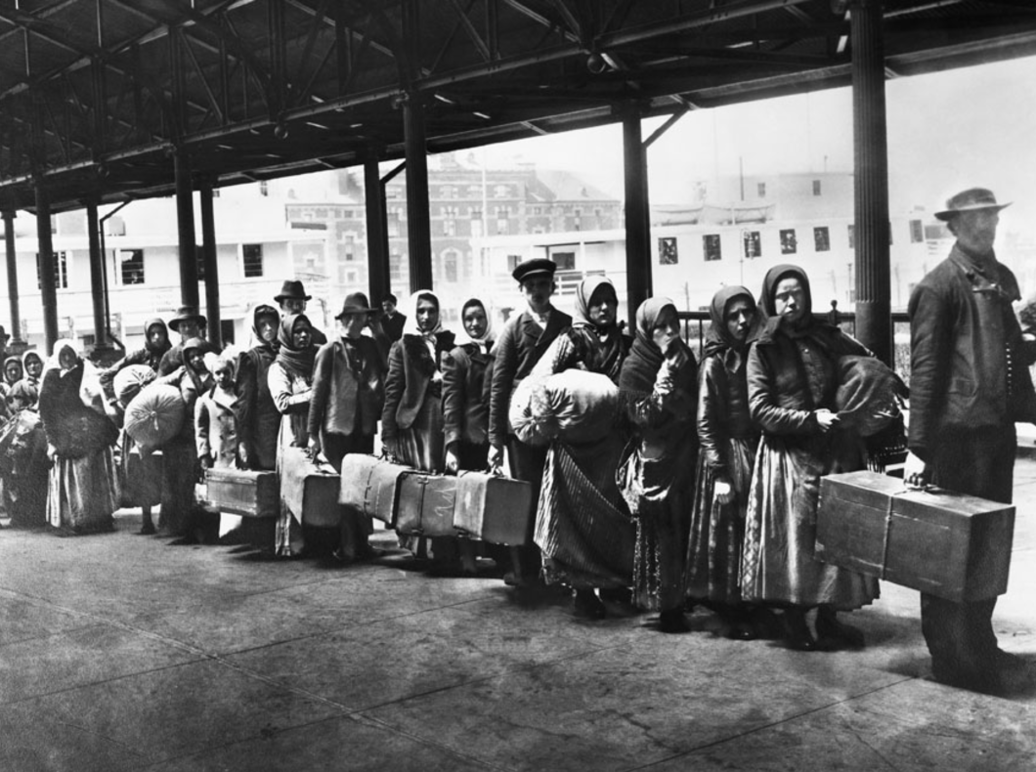After Ellis Island? Italians at the Border in the Age of Trump
My youngest son, a junior in high school, is agonizing over the question whether to wear a black or white bow tie at a formal dance, a quintessential American ceremony, unbeknown to me. He is an American by right of soil, an Italian by maternal descent, a Muslim by name, a black kid by paternal blood. He seems unaffected by Trump's latest executive order, unaware that the fate of thousands of people with permanent resident status is at the moment uncertain. He feels safe here. And yet, is anyone safe in this climate of hate?
Italians do know what it means seeking entry to the United States with fear of detention, deportation, and refusal. They know it because it is part of our history, our Ellis Island legacy. (In this respect, see Anthony Tamburri’s “When We Were the Muslims"). We cannot forget this legacy, or relegate it to the past. Such history is now repeating itself. It continues today for many Italians who have lived at the borders of nationalities, religions, identities, and cultural affiliations, all of which make us American.
Trump’s immigration executive order is not about terror, keeping this country safe. It is about religious bigotry and intolerance, the denial of freedom of movement, which is a fundamental human right. As such, it concerns all of us.
I am familiar with the feeling of living at the border of identities. I was born and lived half of my life in Italy, the other half in the United States. Moreover, I am married to a Muslim man and my children have dual citizenship, Italian and American. This country is now our family’s home. In the last eight years, I have been interviewed at the Chicago’s port of entry many times. Immigration inspectors review my passport, my visa, and other supporting documents every time I return home. They ask questions that confirm my identity and nationality, they want to know the reason why I am seeking entry to the United States, and determine if I am able to do so and for how long. I am then routinely ‘ten-printed,’ and a digital photograph is taken. My family waits for me outside of the airport, ready to bring me safely home.
As Italians in America, we think we have left Ellis Island behind. Yet Ellis Island is not after us. Ellis Island is here, now more than ever. Tomorrow, my son will wear a black bow tie at his formal dance. Like thousands of other high school kids, he will revel in a rite of passage that sanctions his right of belonging to the country he calls home. After Trump’s immigration ban, thousands of people will not be granted the same liberty. Will my son, my family, be safe here? It is up to all of us to make sure that he, and thousands of others like us, will.







































i-Italy
Facebook
Google+
This work may not be reproduced, in whole or in part, without prior written permission.
Questo lavoro non può essere riprodotto, in tutto o in parte, senza permesso scritto.